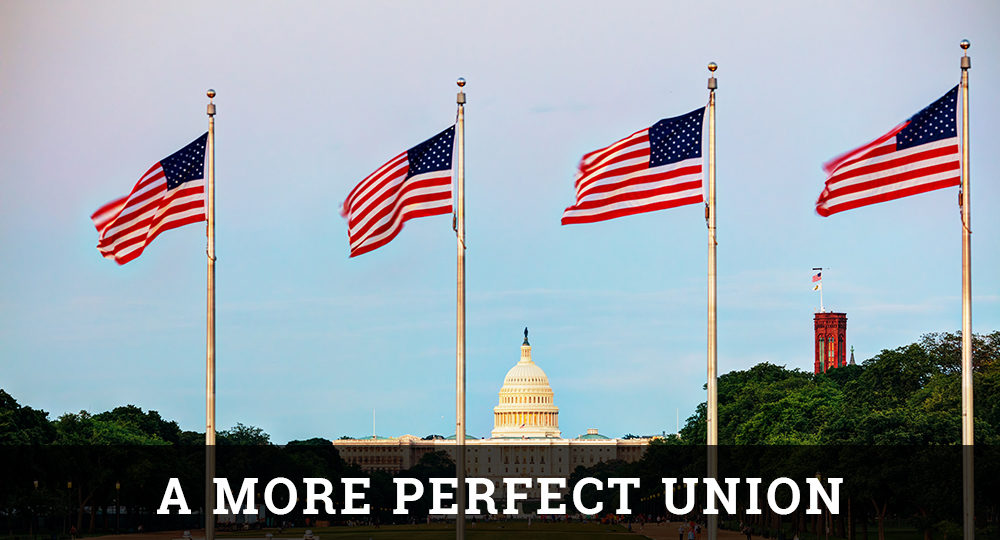A Word to the Church in Captivity
In June the U.S. Supreme Court issued its long-awaited opinion in Obergefell v. Hodges, in which gay rights activists won the constitutional right for same-sex marriage. Five of the nine justices granted that right, inventing it out of whole cloth.
These were the same five who struck down the federal Defense of Marriage Act two years ago, which had defined marriage as one-man/one-woman; and they did so in terms so harshly critical of Judeo-Christian values that, in his dissent, Justice Antonin Scalia said they had treated people of traditional faith like “enemies of the human race.”
Although Justice Anthony M. Kennedy used more temperate language when writing for the majority in Obergefell, I doubt that he and the four liberal justices have softened in their suspicions that traditional Christianity threatens their radical efforts at social engineering for our nation.
My chief concern now is not for the court’s stunning redefinition of marriage, which is only the beginning of mangled “marriage” reformulations. (Some people are already demanding that polygamy be recognized now.) No, my concern is for the church in the 21st century because it may soon be the church “in captivity.”
In fairness, the Kennedy majority opinion did, at the very end, make a minor gesture toward the religious-liberty rights of people holding traditional moral and religious views that oppose same-sex marriage. Justice Kennedy wrote that such believers may have First Amendment protection to “advocate” and “teach” their beliefs, even if contrary to the decision in Obergefell.
But as Chief Justice John G. Roberts Jr. noted in his dissent, it is highly troubling that this thin and insufficient reference to the supposed rights of religious people omitted the phrase free exercise of religion, the very phrase used by the founders who drafted the religion clauses of the First Amendment.
Justice Roberts probably suspects that the court’s left-leaning center has an anemic view of religious liberty, where Christians will be permitted to “advocate” and “teach” their views, but little else. Even then, such advocating and teaching could be restricted or outlawed if the tone or content of the message offends the diversity and tolerance enforcers or those who belong to this newly protected category of same-sex relationships.
Justice Clarence Thomas, in his dissent, noted that Justice Kennedy also failed to recognize the right of religious dissenters to actually act on their beliefs. These are ominous signs.
Of course, there will be more court cases and many years of litigation before we know the full extent of the damage the Supreme Court did to the freedom of religious conscience in America. I suggest we go to Scripture for guidance, encouragement, and impetus. If we become a church in captivity in a pagan culture, we should consider the Israelites.
In the book of Nehemiah, God enabled them to rebuild the walls of Jerusalem, despite virulent opposition. And in Ezra, they rebuilt the Temple, even though violent protest was mounted against them.
Before the Babylonian Captivity, the Lord told the prophet Jeremiah how the Israelites should conduct themselves while in Babylon. Followers of Jesus would be well-advised to read Jeremiah 29, where God told His people to continue building their houses, families, and livelihoods; to avoid the corrosive effects of false religious teachers; and to “seek the peace of the city where I have caused you to be carried away captive, and pray to the Lᴏʀᴅ for it; for in its peace you will have peace” (v. 7).
We must not give up. It is not time to rush to the desert and hide or to cower in the church basement for fear that our hymn-singing might irritate our pagan neighbors. We must continue to influence decision-making, both in the culture and in the halls of government, as long as we have breath. If we actively seek America’s welfare and pray for it, perhaps we can find our welfare.
God’s promises are not up for review by a fractured and failing Supreme Court. They are everlasting. They are the rock-solid foundation for our courageous conduct in the future. We must always remember, “The Lᴏʀᴅ is good, a stronghold in the day of trouble; and He knows those who trust in Him” (Nah. 1:7).





Great truths. May we have your permission to use your article for our opening comments in an upcoming “Church Revitalization Meeting’?